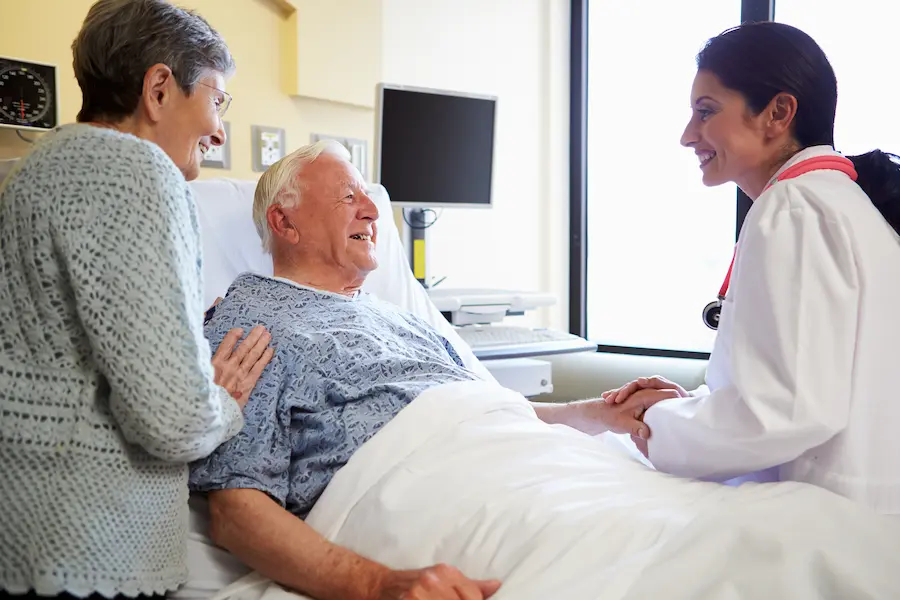No matter what kind of surgery your elderly parent has just gone through, there will be a time of convalescence afterwards. They will probably be kept in hospital for at least a few days following surgery, but when released from the hospital, there’s always a concern as to how to help them until they achieve some sort of safe mobility. It will not always be easy, and they may resent having anyone in the home, but the fact is, they cannot do it alone. Here are some thoughts on how to help them.
Table of Contents
Convalescent Home vs. Home Healthcare
The first thing to consider is the length of time it will take for your elderly parent to convalesce. For example, a hip replacement would take longer than a breast excision which may or may not be malignant. Getting back on their feet and getting around even to do simple things like get to and from the bathroom or getting a glass of water may be beyond what they can handle for quite some time.
With that in mind, they may do better in a skilled nursing facility for convalescence or they may be okay with 24-hour care in their own home. It will obviously depend on their ability to pay and what kind of insurance can subsidize their convalescence, but that isn’t the only issue you may encounter.
Refusal to Accept Help
This is more common in the elderly suffering from some level of dementia, but if that was the case, they probably already have some form of care at home. Even so, after decades of being independent, it’s hard to accept the fact that you need help and are at a stage in life where there is no other alternative.
If your elderly parent absolutely refuses help, you may have no alternative than to get the doctor or surgeon to intervene. Sometimes they can impress upon the patient the necessity of accepting home health care and sometimes they can prescribe a convalescent home. If at all possible, keep your parent in the hospital until the doctor or patient advocate (social worker) can help you find a solution your parent is willing to accept.
Be There as Much as Possible
Although you are not a trained healthcare professional, sometimes your very presence reassures them that they are being well cared for and that someone really cares about their wellbeing. There are small tasks you can actually be trained to help with such as helping them in and out of their wheelchair or onto the commode.
If they are required to get up with their walker and walk a few steps each day, that may be something you can do with them as well. The point is, let them know you are there with them every step of the way and they just might be so rebellious. If at all possible, keep your elderly parent at home with health care workers as needed during recovery from surgery so that they feel safe and secure in familiar surroundings. It may take a while to get them amenable to accepting help, but it can be done with patience and perseverance.
Read also: ADHD and Sports: Essential Things Parents Should Know

